When Rolling Stone magazine first published its list of "The 500 Greatest Songs of All Time" in December 2014, the tracks listed below all made the top 100.
In a September 2021 update however, many dropped placings or were left out entirely.
This year's list is more diverse having included entries from the hip-hop, modern country, indie rock, reggae, R&B, and Latin pop genres; however, detractors still consider the list an example of cultural supremacy because, except for a few Spanish-language songs, all entries are in English and from the Western culture.
These are the hits dropped from the top 100 of Rolling Stone magazine's "Greatest Songs" rundown.
"My Generation" by The Who (1965)
Down 221 (from 11 to 232)
The English rock band were demoted significantly, but "My Generation" is still one of their most well-known songs with its youthful rebellion statements. The song, was composed by the then 22-year-old Pete Townshend in 1965.
"London Calling" by The Clash (1979)
Down 128 (15 to 143)
Three years after punk first broke through, The Clash released "London Calling," the eponymous single from their third studio album. Its lyrics reflect the chaos of rising unemployment, street riots and racial conflict facing U.K. society.
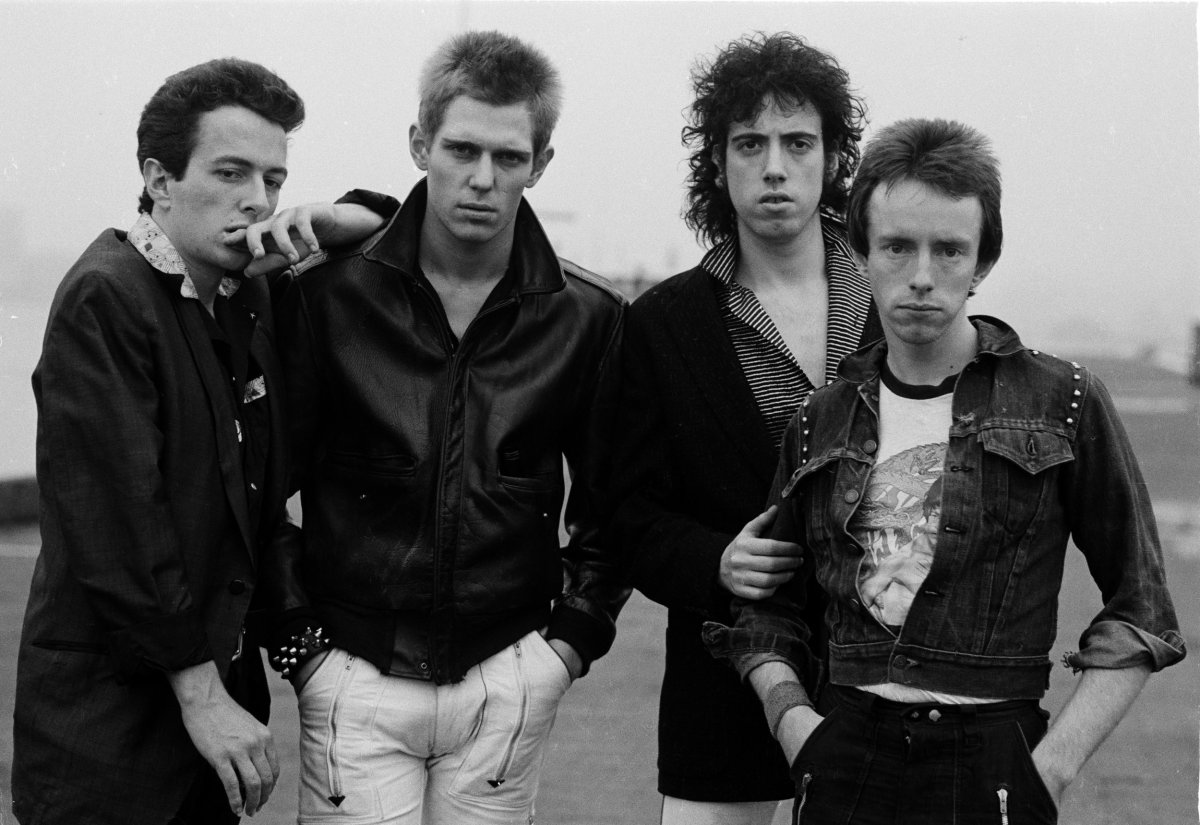
"Purple Haze" by Jimi Hendrix (1968)
Down 233 (from 17 to 250)
"Purple Haze" is considered Jimi Hendrix signature song, and one of the greatest guitar songs ever created. Hendrix revealed the song's title came from a science-fiction story he read, Night of Light by Philip José Farmer. In the novel, purple haze is used to describe how the sun affects the inhabitants of a planet.
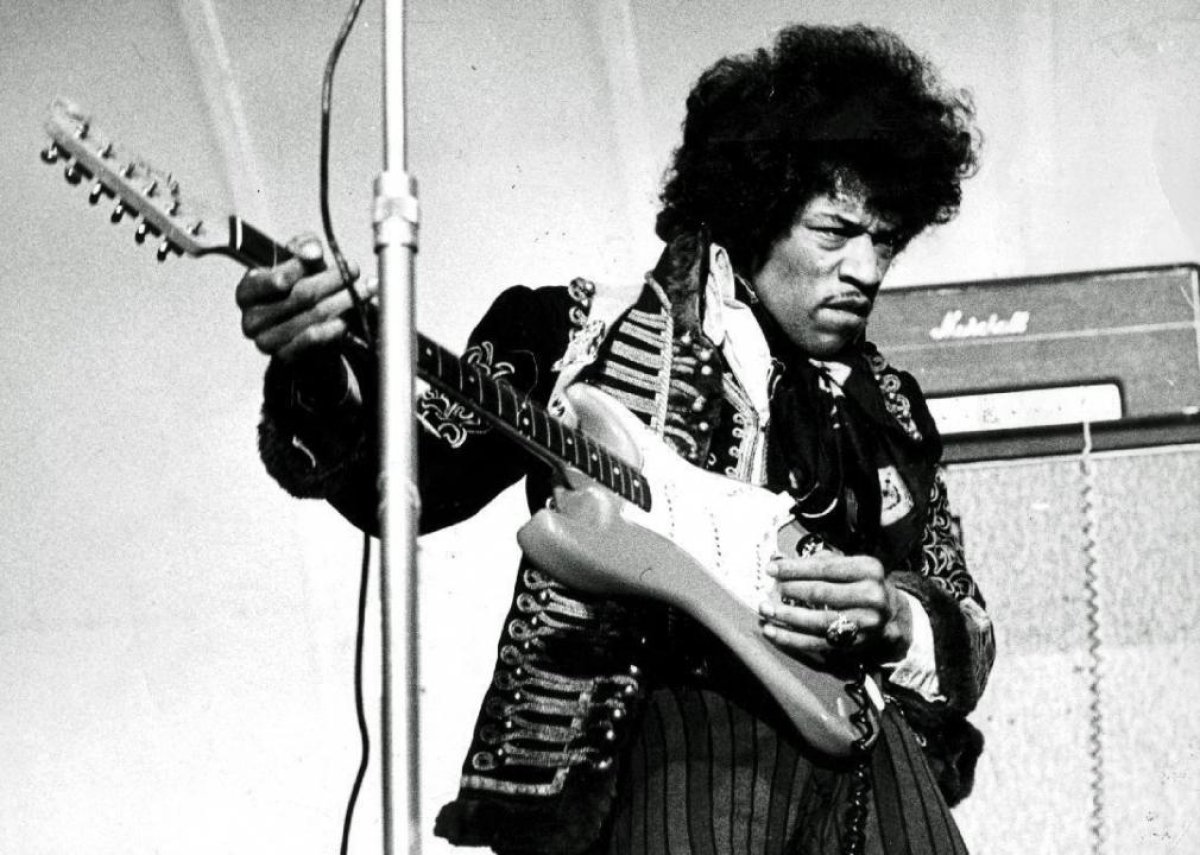
"Maybellene" by Chuck Berry (1955)
Down 84 (from 18 to 101)
Berry's first single and first hit. The rock 'n' roll song tells the story of a hot rod race and a failed relationship.
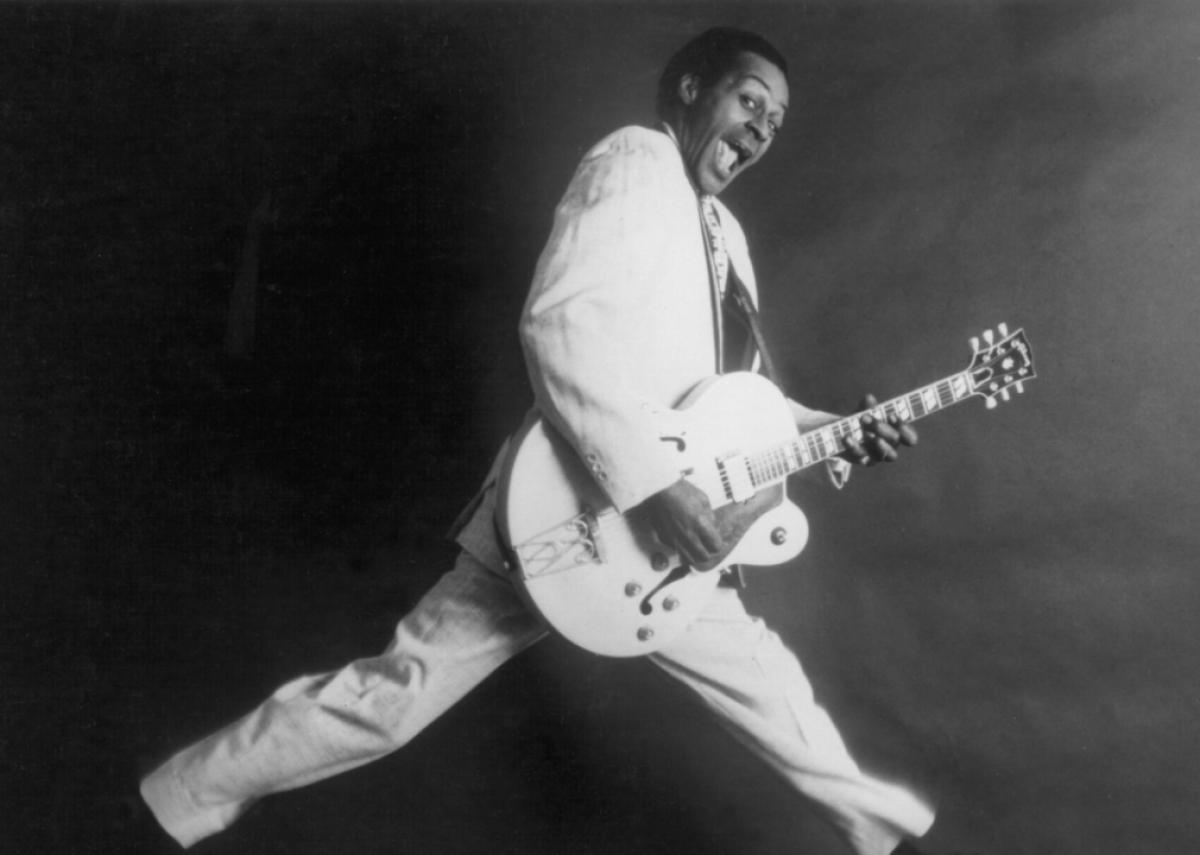
"Let It Be" by The Beatles (1969)
Down 101 (from 20 to 121)
Paul McCartney said last year during an interview with James Corden that the inspiration for the song was his mother, Mary: "I had a dream in the Sixties where my mum who died came to me in a dream and was reassuring me, saying: 'It's gonna be OK. Just let it be..."
"People Get Ready" by The Impressions (2003)
Down 98 (from 24 to 122)
The gospel-influenced track, reached number 3 on the R&B charts and number 14 on the pop charts.
"Layla" by Derek & The Dominos (1972)
Down 197 (from 27 to 224)
Written by Eric Clapton and Jim Gordon, the song was inspired by the Persian epic poem Layla and Manjun, a classic unrequited love story.
"Help!" by The Beatles (1966)
Down 418 (from 29 to 447)
In 1970, John Lennon said of the song "Help!": "The only true songs I ever wrote were 'Help!' and 'Strawberry Fields'.
"They were the ones I really wrote from experience and not projecting myself into a situation and writing a nice story about it, which I always found phoney.
"The lyric is as good now as it was then. It makes me feel secure to know that I was that sensible, aware of myself back then...That was with no acid, no nothing (well, pot)."
"Sympathy for the Devil" by The Rolling Stones (1968)
Down 74 (from 32 to 106)
Written by Keith Richards and Mick Jagger, the lyrics were inspired by Mikhail Bulgakov's "The Master and Margarita" and French poet Charles Baudelaire.
Mick Jagger once said of the song: "You just have this feeling. It had its poetic beginning, and then it had historic references and then philosophical jottings and so on. It's all very well to write that in verse, but to make it into a pop song is something different. Especially in England - you're skewered on the altar of pop culture if you become pretentious".
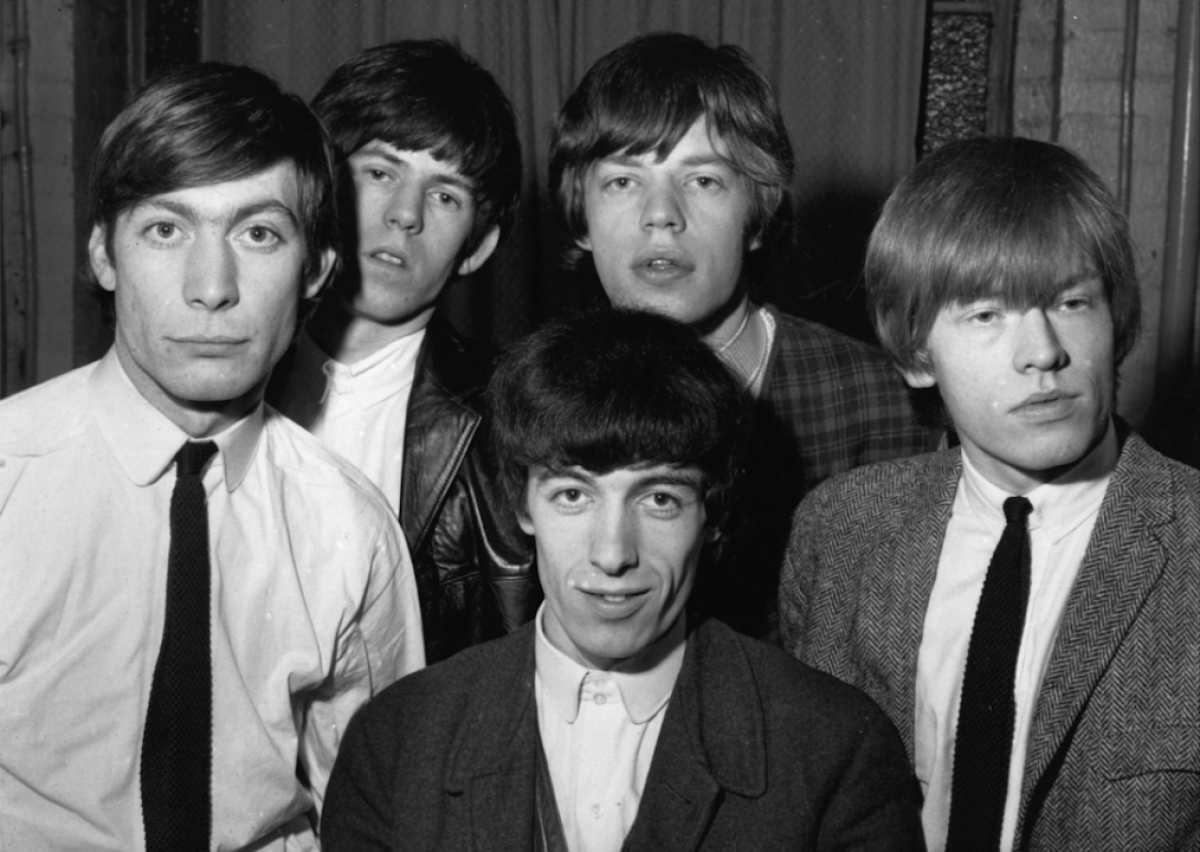
"River Deep - Mountain High" by Tina Turner (1991)
Down 188 (from 33 to 221)
Rolling Stone ranked "River Deep – Mountain High" No. 33 on their 2004 list, but demoted the Tina Turner song to 221 in 2021. The Rock and Roll Hall of Fame included it in alist of the 500 Songs That Shaped Rock, and the song was inducted into the Grammy Hall of Fame in 1999.
"You've Lost That Lovin' Feelin" by The Righteous Brothers (1964)
OUT of Top 500 (Down at least 467)
A desperate attempt to rekindle a lost love. It was composed by Phil Spector, Barry Mann and Cynthia Wei, it ranked number 34 in the 2004 list but it is currently out.
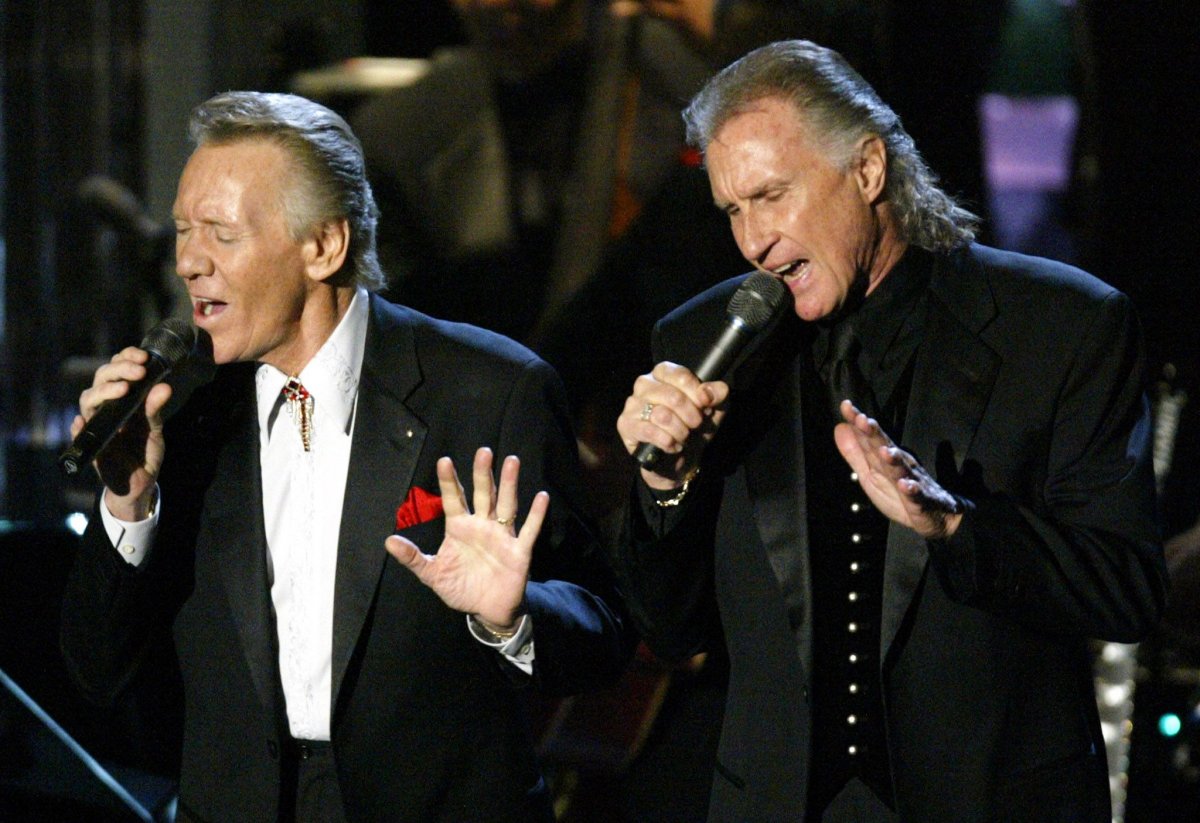
"Light My Fire" by The Doors 1967
Down 275 (from 35 to 310)
Mainly written by the band's guitarist, Robby Krieger, he said about his inspiration, "I had the idea of writing about the four elements – earth, air, fire and water – and I picked fire because I liked the Stones song Play With Fire. I wanted to make this song a really good one, so I said, 'I'm gonna use every chord I know.'
"One" by U2 (1992)
Down 26 (from 36 to 62)
The song's lyrics are open to many interpretations but Bono has said it is "about relationships."

"That'll Be the Day" by Buddy Holly (1957)
Down 85 (from 39 to 124)
Inspired by John Wayne western The Searchers, in which the Duke repeatedly says the title phrase. Charles Hardin "Buddy" Holley sadly died two years after the song was released in a plane crash.
"Dancing in the Street" by Martha Reeves & The Vandellas (1964)
Down 90 (from 40 to 130)
Written by Marvin Gaye, William "Mickey" Stevenson and Ivy Jo Hunter, and released at the height of the U.S. civil rights movement, the song became an anthem calling for social change.
"Georgia on My Mind" by Ray Charles (1960)
Down 239 (from 44 to 283)
A hit in 1960s, it reached number one on the U.S. Billboard Hot 100 with Ray Charles' recording. In 1979, it became the official Georgia state song.
The song is still a much loved song but no longer in the Rolling Stone top 200.
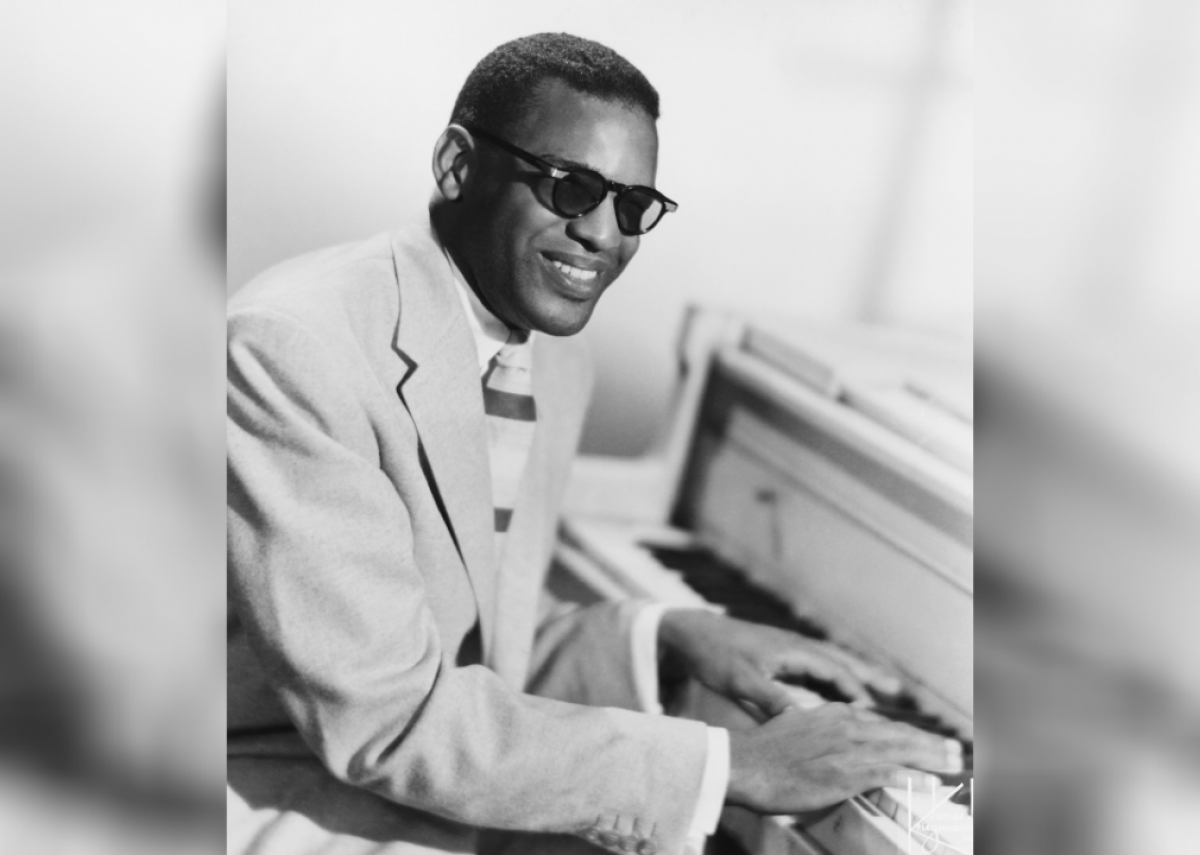
"Heartbreak Hotel" by Elvis Presley (1956)
Down 302 (from 45 to 347)
The lyrics written by Tommy Durden and Mae Boren Axton, were inspired by a newspaper article about a man who committed suicide by jumping from a hotel window.
"Hotel California" by Eagles (1977)
Down 262 (from 49 to 311)
The title track from the 1977 Eagles' album was inspired by California. Composer Don Henley has said, "It's a song about a journey from innocence to experience. It is about the jaded, blasé, hedonistic lifestyle that characterizes California"
"Anarchy in the U.K." by Sex Pistols (1977)
Down 72 (from 53 to 125)
The first single by English punk rock band the Sex Pistols. "Anarchy in the U.K." Lyrics were considered controversial and promoting violence against the government.
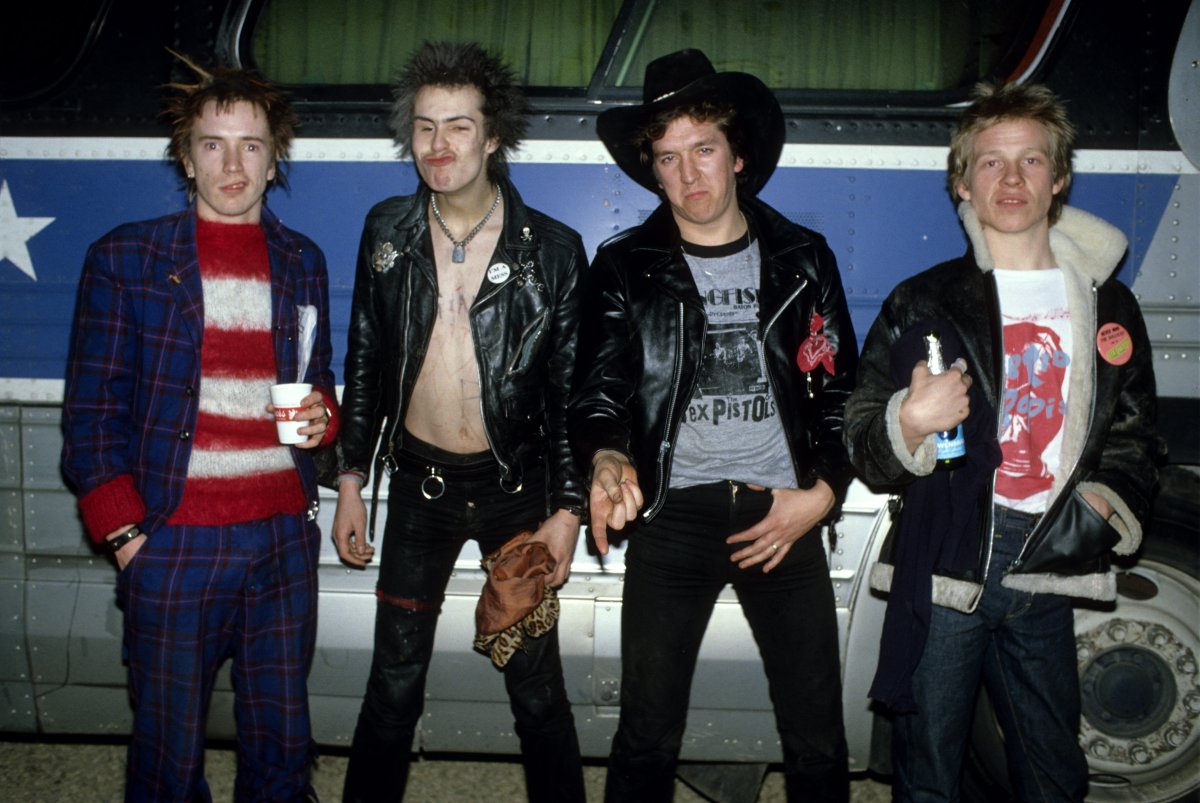
"When a Man Loves a Woman" by Percy Sledge (1966)
OUT of Top 500 (Down at least 447)
The song ranked number one on both the Billboard Hot 100 and R&B singles charts in the 1960s. Bette Midler recorded the song in 1980 and had a Top 40 hit, but it was the 1991 Michael Bolton version that peaked at number one on both the Billboard Hot 100 chart and airplay rundown, the Billboard Adult Contemporary Singles chart.
Despite its success, the song is out of the 500 greatest song list.
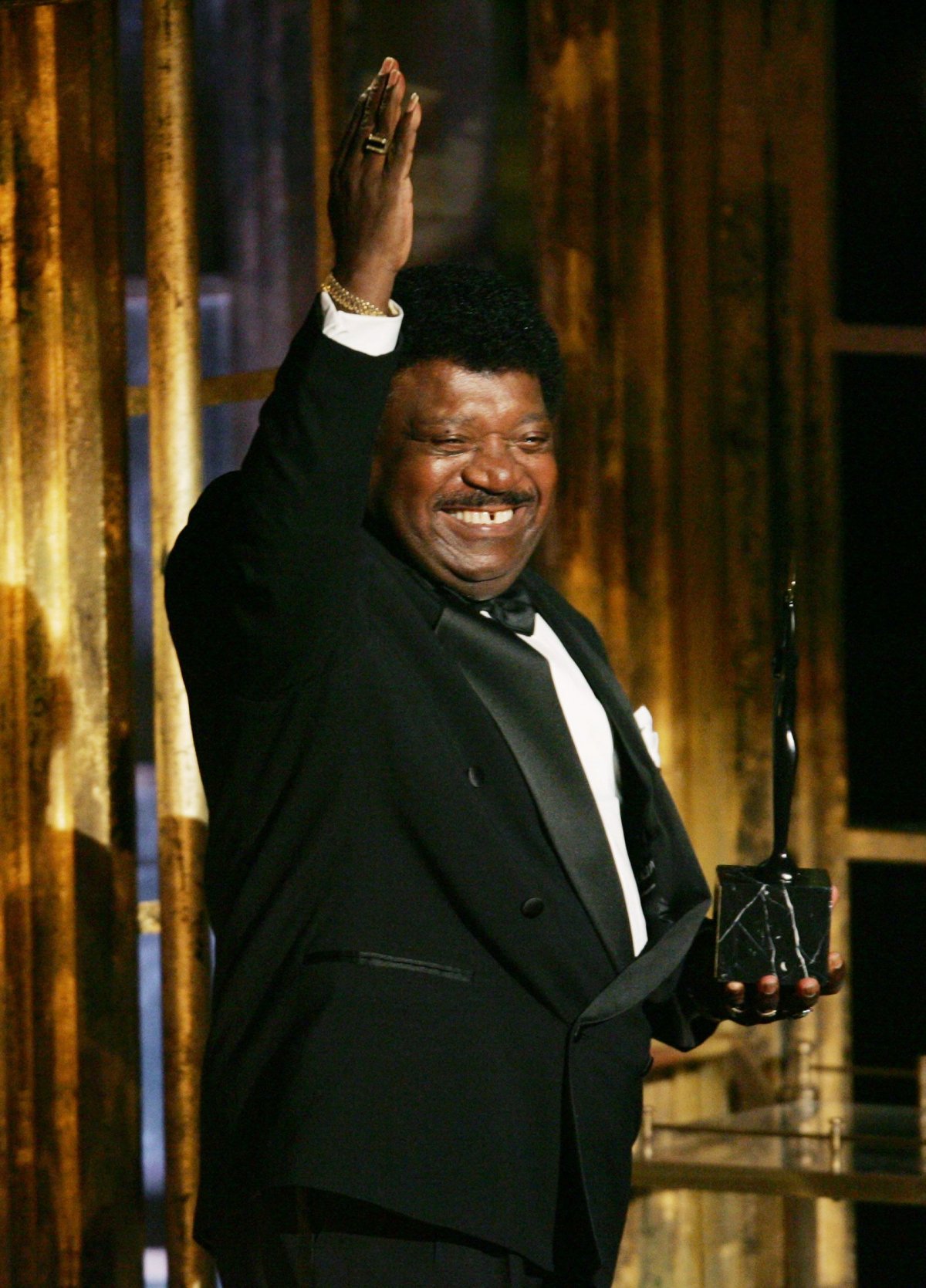
"Louie Louie" by The Kingsmen (1963)
Down 101 (from 55 to 156)
This American rhythm and blues song was a hit when it first came out. Even though it has been demoted by Rolling Stone, it is still considered one of the 500 greatest songs of all time.
"Long Tall Sally" by Little Richard (1956)
OUT of Top 500 (Down at Least 443)
The single reached number one on the Billboard rhythm and blues chart, and it received the Cash Box Triple Crown Award in 1956.
It placed at number 55 on Rolling Stone's 2004 list but no longer make the cut in 2021.
"A Whiter Shade of Pale" by Procol Harum (1967)
Down 241 (from 57 to 271)
Procol Harum is a rock band from the U.K. and "A Whiter Shade of Pale" is the first track the band ever recorded and released. A one-hit wonder that reached number 1 in nearly 15 different countries and peaked at number 5 in the U.S.
"The Times They Are A-Changin" by Bob Dylan (1967)
OUT of Top 500 (Down at Least 442)
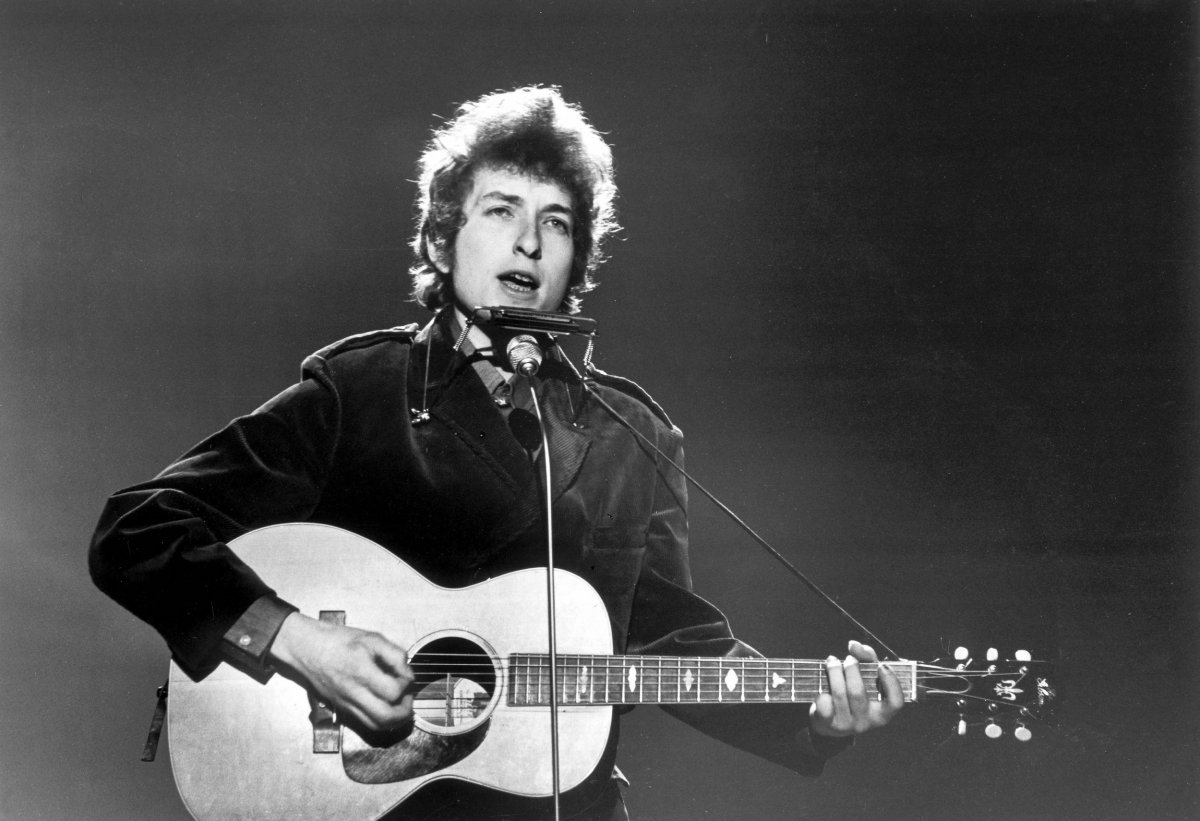
The 2016 Nobel laureate in literature, Bob Dylan, skillfully captures the events happening in the U.S. in the 1960s in "The Times They Are A-Changin," namely: the civil rights movement, the counter culture movement, the anti-Vietnam war protests, the fight against poverty, and the gay rights movement.
The poem may have been worthy of a Nobel but the song is out of the Rolling Stone list.
Dropping 442 places in the rundown, it is one of the biggest fallers in the updated "Greatest 500" list.
"Whole Lotta Shakin' Going On" by Jerry Lee Lewis (1957)
OUT of Top 500 (Down at Least 440)
In 2004 the song was listed at number 61 but in the latest update, it didn't make the cut.
"Bo Diddley" by Bo Diddley (1957)
Down 215 (from 62 to 277)
Three Guys and a girl with a tambourine equals an all-time powerful song.
"For What It's Worth (Stop, Hey What's That Sound)" by Buffalo Springfield (1967)
OUT of Top 500 (Down at least 438)
The song was an instant classic when it was released in 1967.
"For What's It's Worth" was inspired by the Sunset Strip curfew riots in 1966, which followed the closing of the West Hollywood nightclub Pandora's Box.
"She Loves You" by The Beatles (1966)
Down 71 (from 64 to 135)
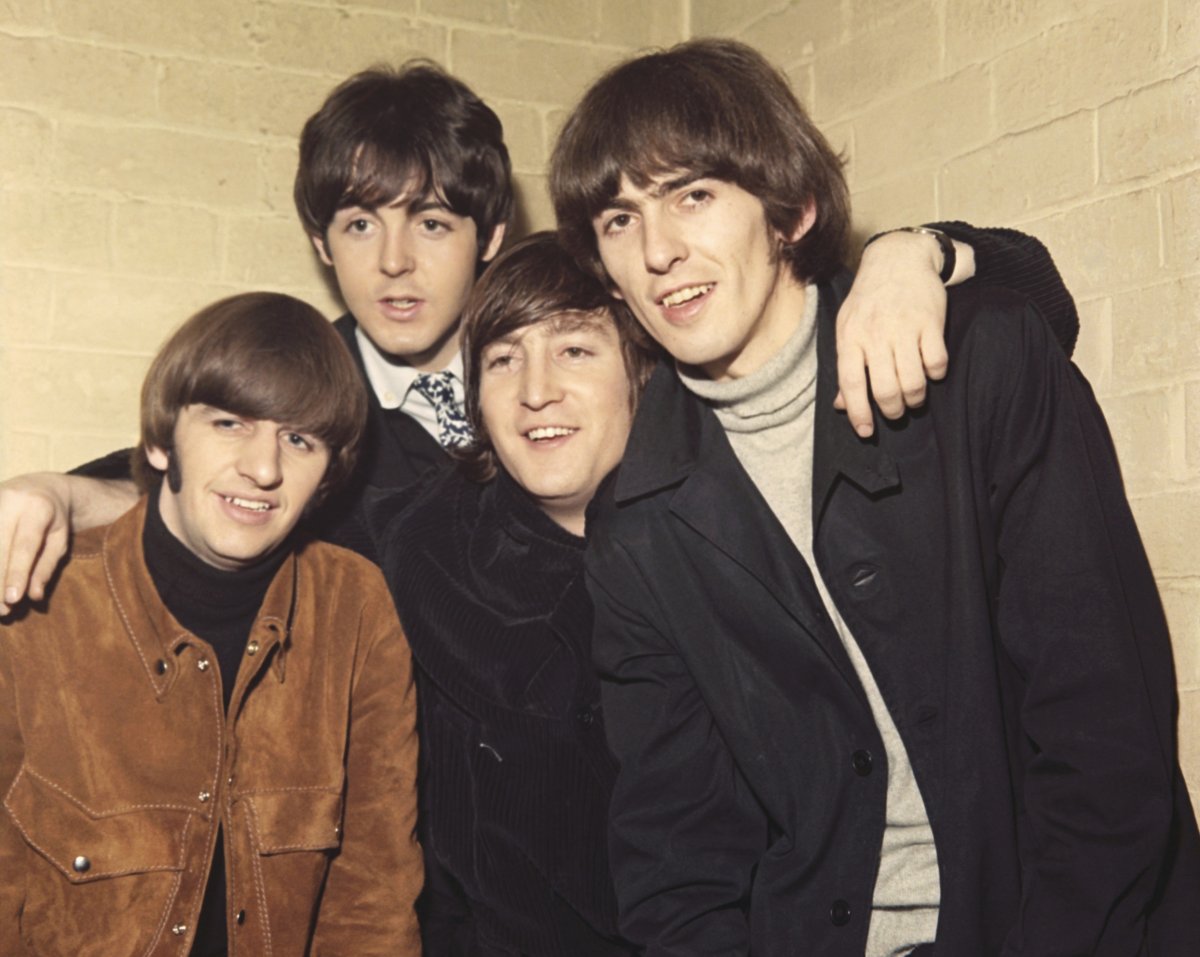
In 1964, this single was one of the five Beatles songs that simultaneously held the top five positions in the United States charts.
In the U.K., it is the band's best-selling single and the top-selling single of the 1960s.
"Sunshine of Your Love" by Cream (1968)
OUT of Top 500 (Down at Least 436)
It was Cream's best-selling song and it features an acclaimed guitar solo from Eric Clapton.
In 2009, it was named the 44th best hard rock song of all time by VH1 and in 2004, the 65th greatest song of all time by Rolling Stone but in 2021, it is not included in their list.
"Jailhouse Rock" by Elvis Presley (1957)
Down 149 (from 67 to 216)
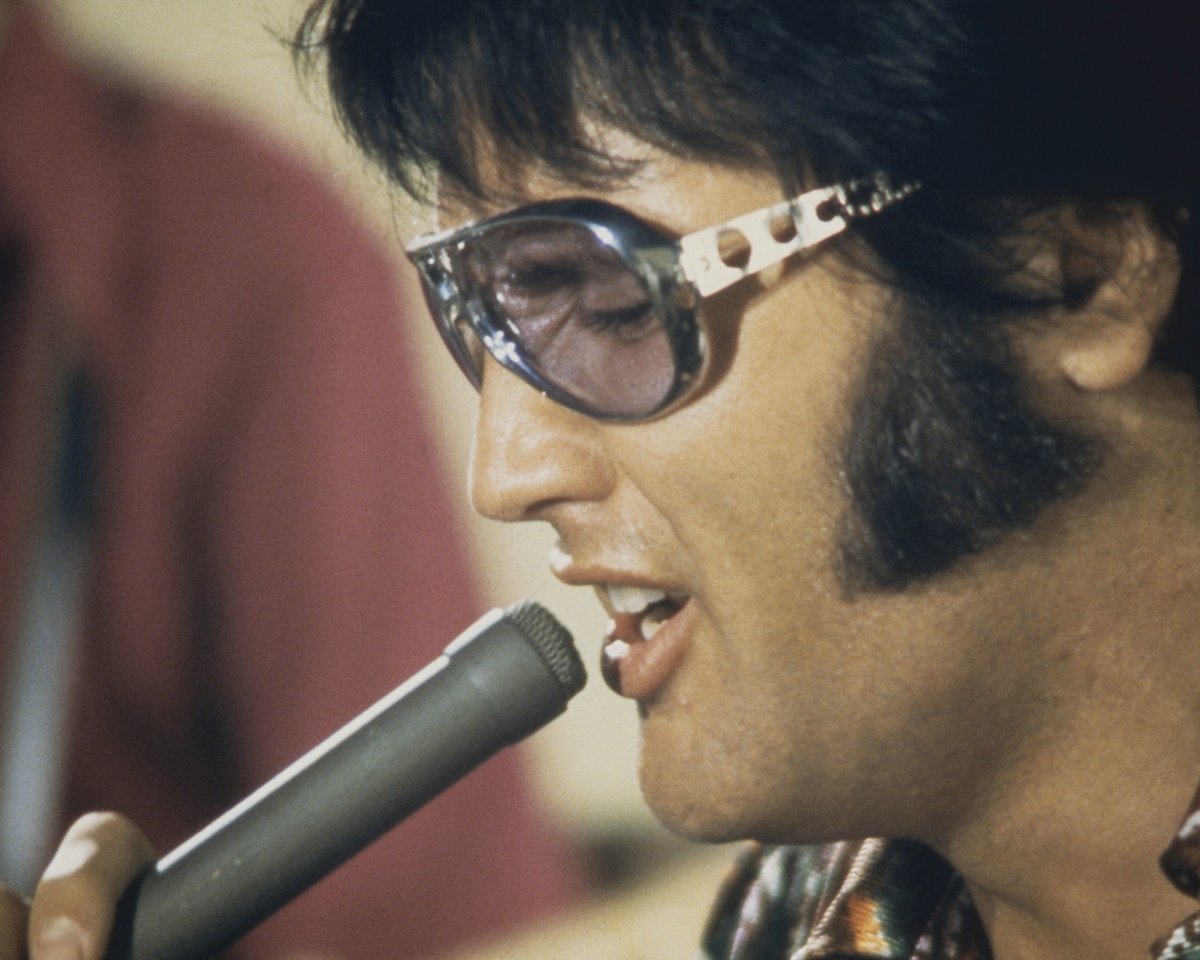
The theme song for Elvis Presley's third movie. "Jailhouse Rock" was sang as straight rock 'n' roll and, according to Rolling Stone, "introduces Scotty Moore's guitar solo with a cry so intense that the take almost collapses".
"Crying" by Roy Orbison (2006)
Down 392 (from 69 to 461)
The Big O said the lyrics were inspired by an encounter he had with an ex with whom he was still in love. "But, darling, what can I do?/ for you don't love me/ and I'll always be crying over you".
"Whole Lotta Love" by Led Zeppelin (1969)
Down 53 (from 75 to 128)
Rolling Stone says that "Whole Lotta Love" was a tribute to Chicago-blues songwriter Willie Dixon, based on his "You Need Love," a Muddy Waters single from 1962.
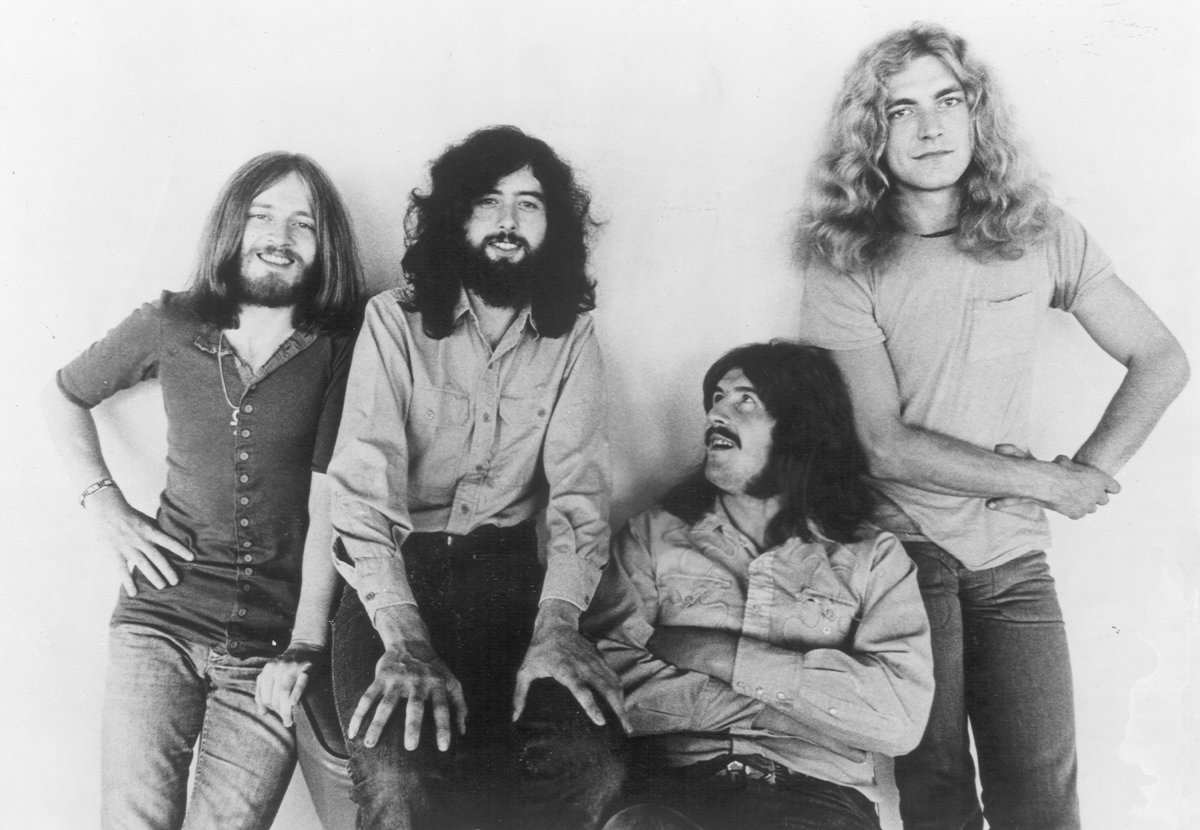
"Mystery Train" by Elvis Presley (1955)
OUT of Top 500 (Down at least 424)
In 2004 "Mystery Train" ranked 77 on the 500 greatest songs list and Rolling Stone described it as "Presley's most haunting songs, a stark blues number that sounds ancient but was actually first cut only two years before by Memphis blues singer Junior Parker".
Forward 17 years later, and the song is out the top 500 completely.
"I Got You" by James Brown (1965)
OUT of Top 500 (Down at least 423)
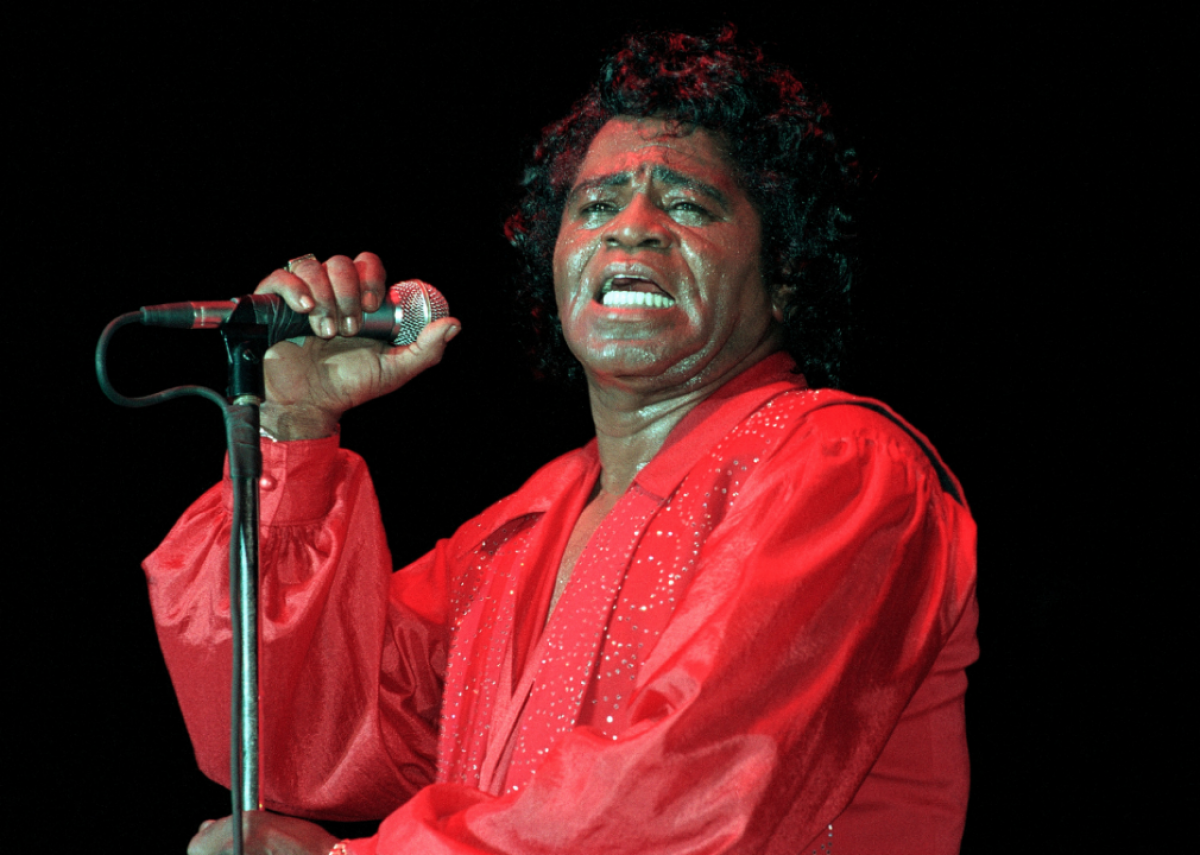
"I Got You (I Feel Good)" is James Brown's highest-charting track on Billboard Hot 100 at number 3. Rolling Stone placed the song at number 78 in 2004, but it didn't make the list in 2021.
"Mr. Tambourine Man" by The Byrds (1965)
Down 151 (from 79 to 230)
The debut album of American folk rock band the Byrds, this classic folk-pop tune was written by Bob Dylan who also released his own version.
In 2004, the song was listed at number 79 but in the new Rolling Stone update, it ranks at number 230.
"I Heard It Through the Grapevine" by Marvin Gaye (1968)
Down 39 (from 80 to 119)
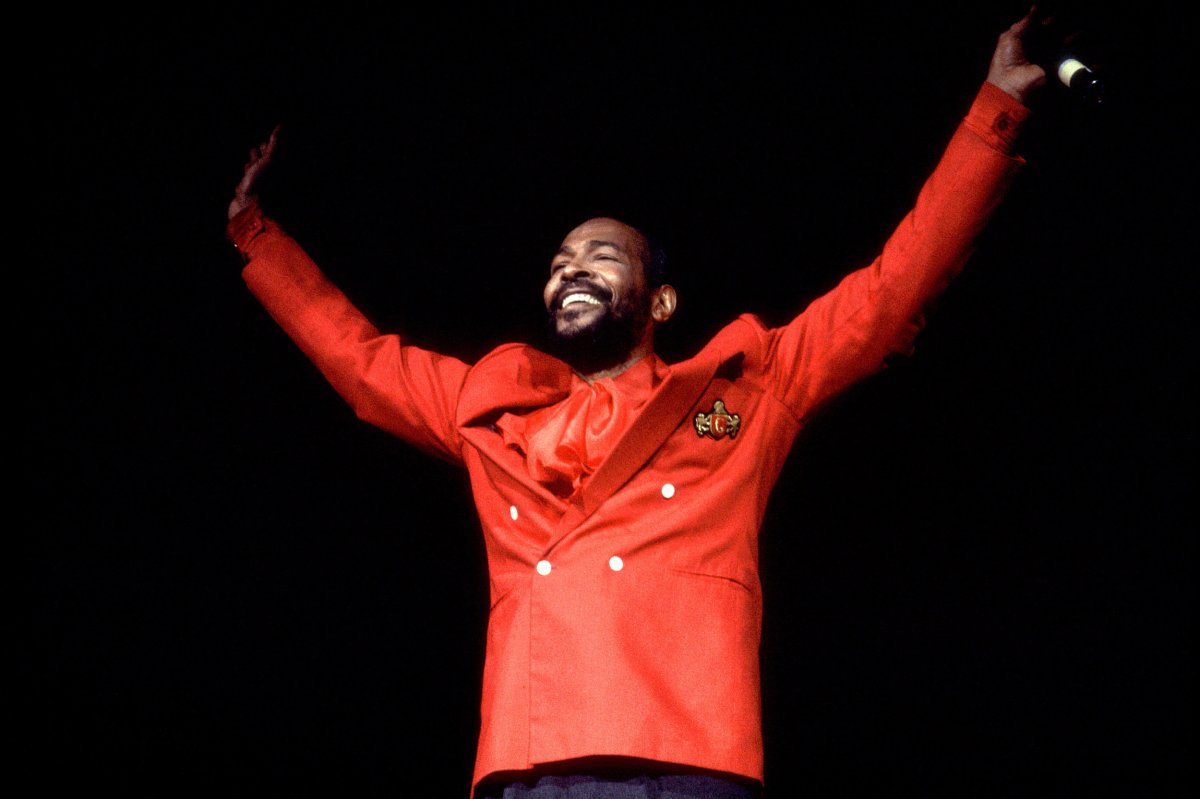
Marvin Gaye's 1968 version of "Grapevine," had been a hit the year before for Gladys Knight.
Rolling Stone wrote of the song: "Motown producer Norman Whitfield had a reputation for recording the same song with a number of acts, and the song — which Gaye initially resisted recording — became the bestselling Motown single of the decade".
"Blueberry Hill" by Fats Domino (1956)
Down 66 (from 81 to 147)
"Blueberry Hill" was first recorded in 1940 by several artists. Inspired by the 1949 Louis Armstrong version, Fats Domino decided to do the same and "Blueberry Hill" became his biggest hit ever.
"You Really Got Me" by The Kinks (1964)
Down 94 (from 82 to 176)
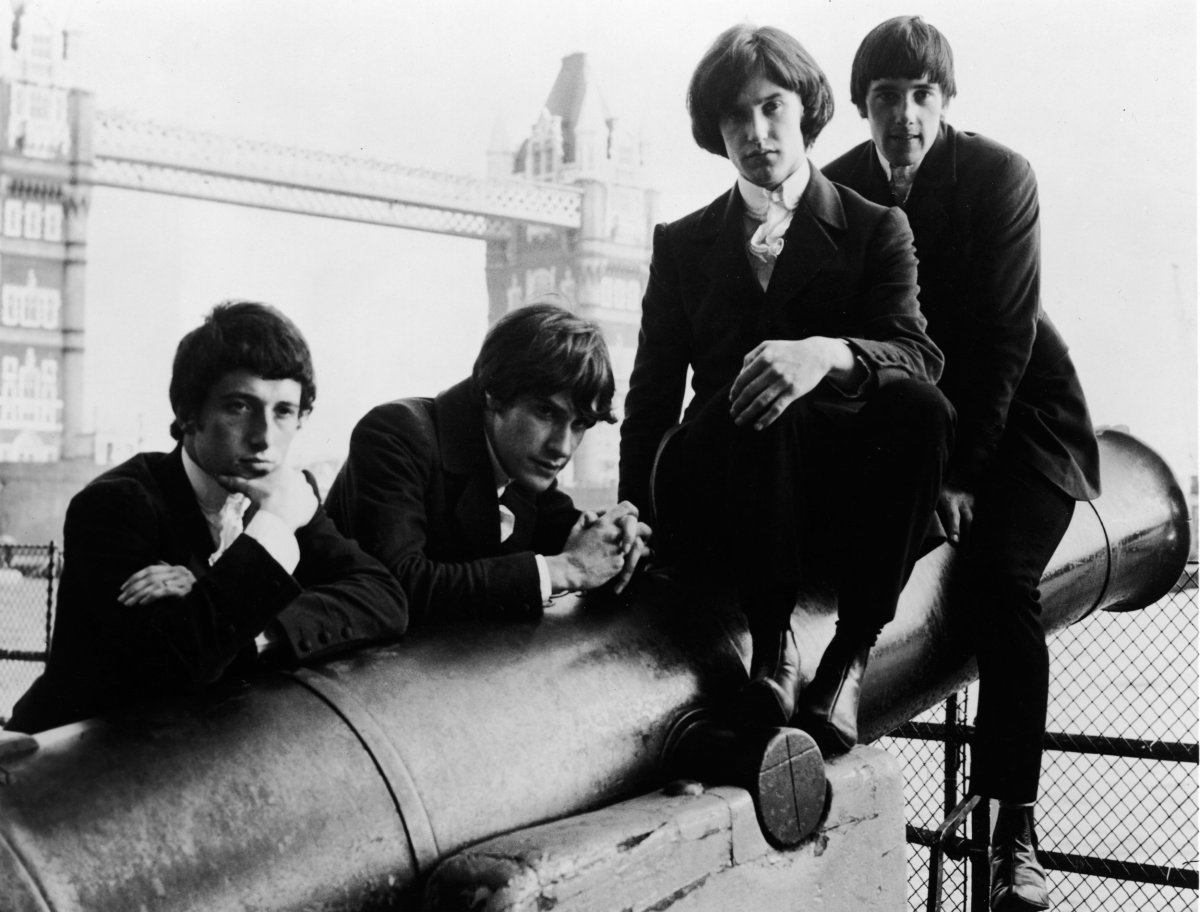
Rolling Stone describes the song as a "deliberately raw rave-up." The Kink's song was a goundbreaking and influential hit of the '60s that stands the test of time.
"Norwegian Wood (This Bird Has Flown)" by The Beatles (1966)
OUT of Top 500 (Down at least 418)
"Norwegian Wood (This Bird Has Flown)" first appeared on the 1965 album Rubber Soul. It was the first example of a rock hit in which featured the sitar.
"Every Breath You Take" by The Police (1983)
Down 221 (from 84 to 305)
In the 1983, Rolling Stone critics and readers poll, it was voted "Song of the Year." In the U.S., it was the best-selling single of 1983 and fifth-best-selling single of the decade.
"Crazy" by Patsy Cline (1961)
Down 110 (from 85 to 195)
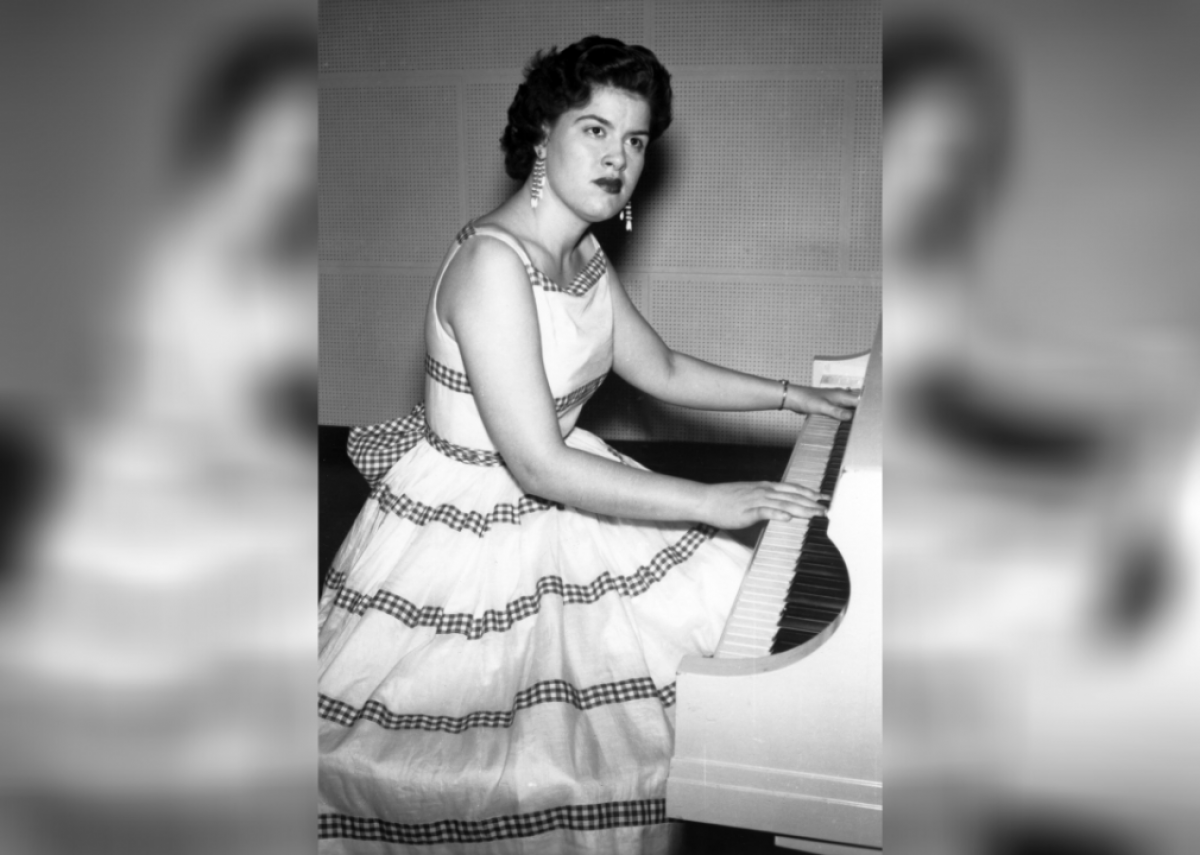
According to Rolling Stone the song, "would, years later, help set the stage for a sophisticated new phase of the C&W sound known as 'countrypolitan.'"
Patsy Cline died in a plane crash less than two years later.
"Thunder Road" by Bruce Springsteen (1975)
Down 25 (from 86 to 111)
"Thunder Road" is considered one of Springsteen's greatest songs and one of the top rock songs in history. It no longer features in the Top 100, but is still regarded as one of the greatest songs ever.
"Ring of Fire" by Johnny Cash (1963)
Down 114 (from 87 to 201)
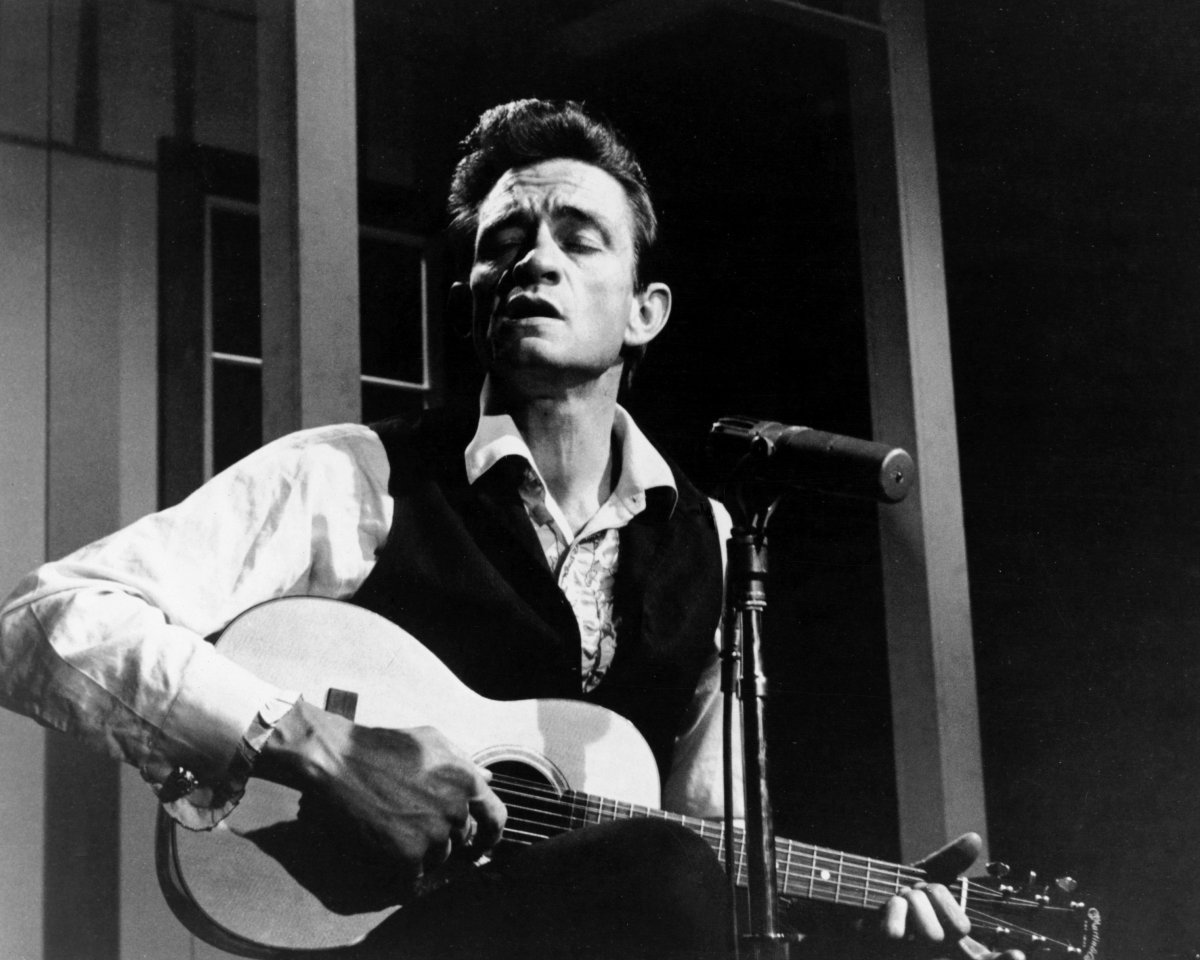
The single reached No. 1 when it was first released and stayed there for seven weeks and it was also a Top 20 hit on the pop charts.
"California Dreamin" by The Mamas & the Papas (1966)
Down 331 (from 89 to 420)
One of the all-time sunniest songs of longing, according to Rolling Stone. But no longer in the Top 100 greatest songs ever.
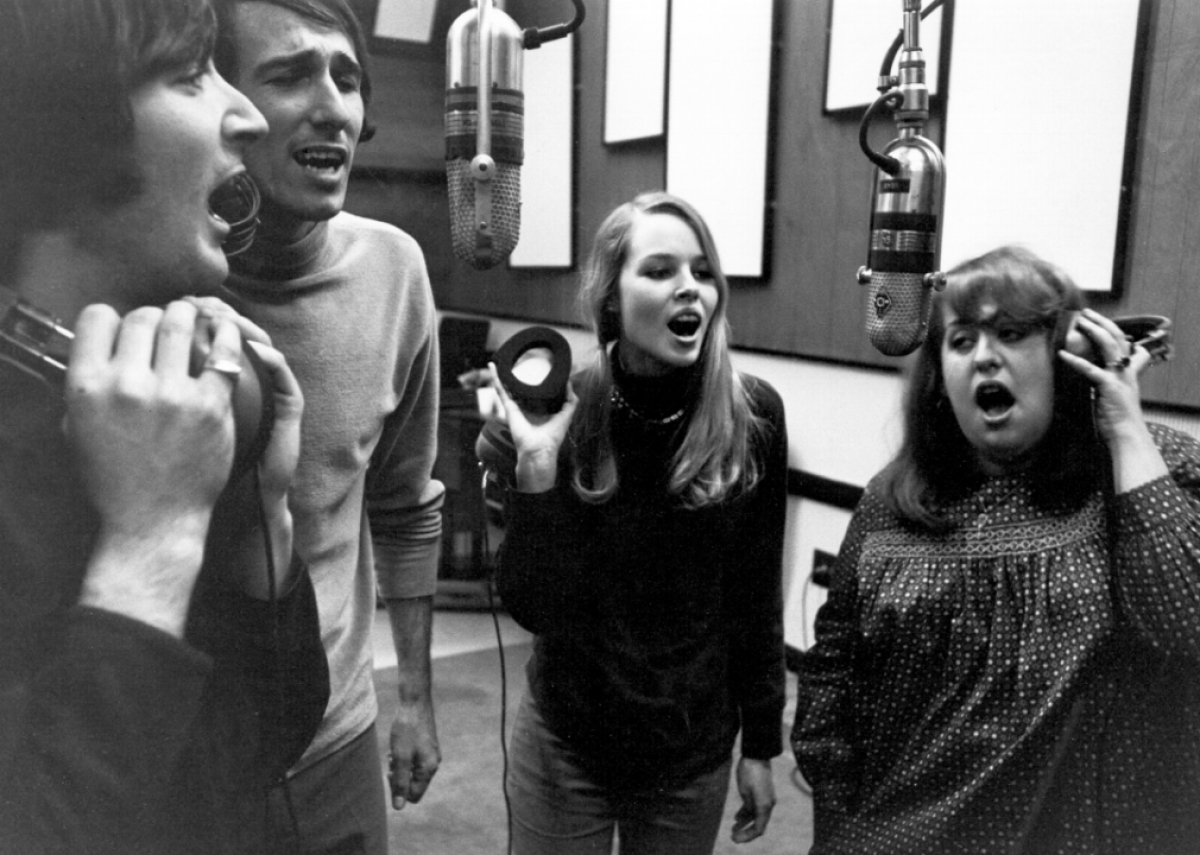
"In the Still of the Night" by The Five Satins (1956)
Down 80 (from 90 to 170)
The song has been hailed as one of the best known doo-wop songs. A style of popular music that originated in the '50s in the U.S. and marked by the use of close harmony vocals, using silly phrases.
"I Still Haven't Found What I'm Looking For" by U2 (1987)
Down 228 (from 93 to 321)
The hit song was the band's second consecutive no.1 single on the U.S. Billboard Hot 100.
"Blue Suede Shoes" by Carl Perkins (1956)
OUT of Top 500 (Down at least 406)
One of the first rockabilly records that incorporated elements of blues, country and pop music of its time.
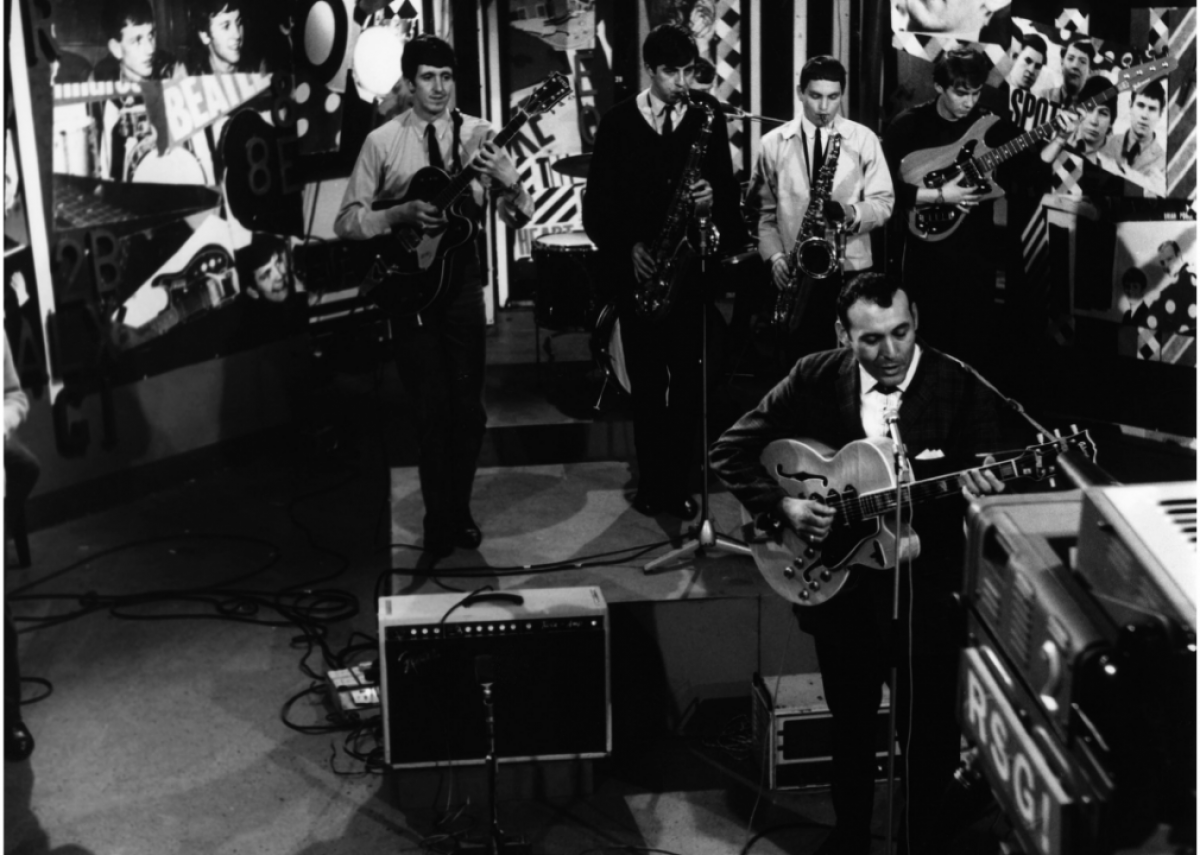
"Great Balls of Fire" by Jerry Lee Lewis (1957)
Down 146 (from 96 to 242)
It was the number 2 song in 1957 in the pop charts and one of the top 100 greatest songs in the Rolling Stone 2004 list. In 2021, it is ranking at number 242.
"Roll Over Beethoven" by Chuck Berry (1959)
OUT of Top 500 (Down at least 404)
The title of the song makes reference to Ludwig van Beethoven, demanding the genius composer roll over and make room for rock and roll.
Alas, Chuck Berry's song is the one rolling over and out of the 500 greatest songs list.

"Love And Happiness" by Al Green (1972)
Down 176 (from 98 to 274)
The 1972 song by Al Green from his album 'I'm Still in Love with You' was in the top 100 songs in 2004, but this year it went down 176 places in the list.
Writer Mabon "Teenie" Hodges described the song as "like a slow fever, building on the beat, pushing up the temperature with each breath of the staccato horns and pushing through delirium as we came up on the fade."
"Revival Fortunate Son" by Creedence Clearwater (1969)
Down 128 (from 99 to 227)
One of the Vietnam era's best-known protest songs and still one of the 500 greatest songs ever.
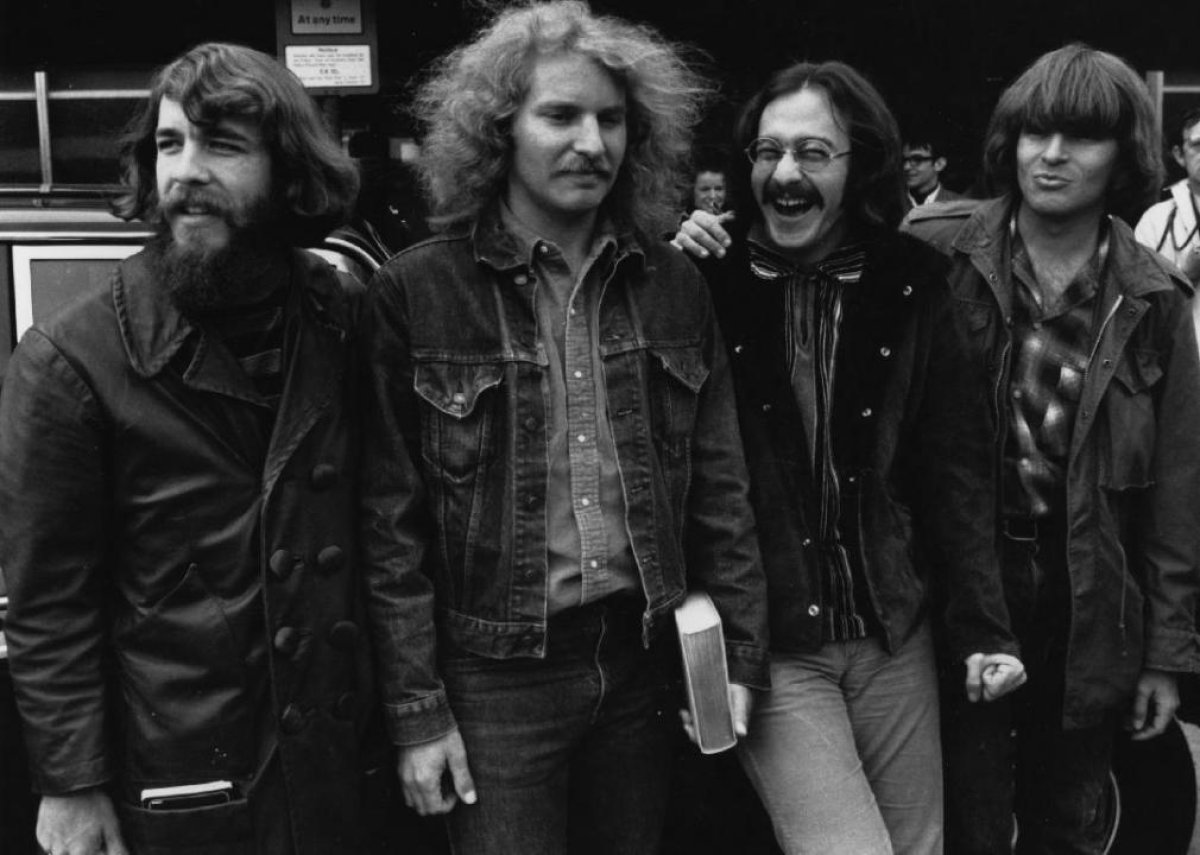
"You Can't Always Get What You Want" by The Rolling Stones (1969)
OUT of Top 500 (Down at least 401)
In 2004, it was named as the 100th greatest song of all time but even legendary rockers can't always get what they want and the song is out.
Uncommon Knowledge
Newsweek is committed to challenging conventional wisdom and finding connections in the search for common ground.
Newsweek is committed to challenging conventional wisdom and finding connections in the search for common ground.
About the writer
To read how Newsweek uses AI as a newsroom tool, Click here.








